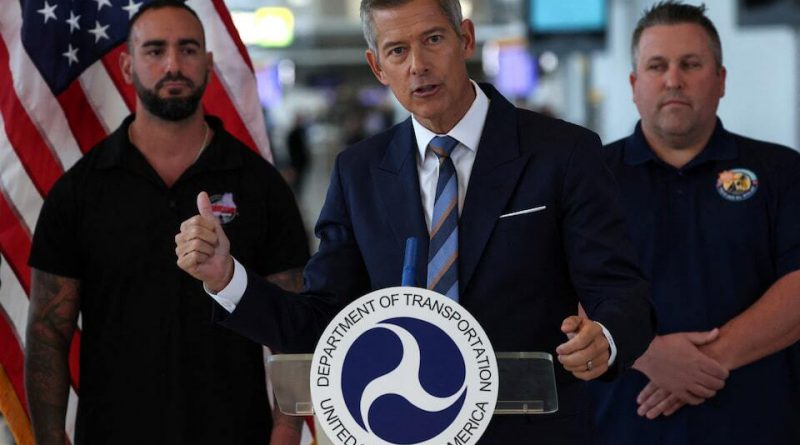U.S. and Mexico Move Toward Fairer Aviation Framework to Strengthen Bilateral Air Travel
New York – The United States has announced a series of regulatory adjustments aimed at ensuring fairness and balanced competition in air services between U.S. and Mexican carriers.
The move, while temporarily affecting 13 routes operated by Mexican airlines, is being viewed by officials as a necessary step toward restoring full compliance and creating a more transparent, mutually beneficial aviation relationship between the two neighboring nations.
Transportation Secretary Sean Duffy explained that the changes are intended to reaffirm long-standing commitments under the bilateral aviation agreement and to ensure that both countries operate under fair and reciprocal conditions.
The U.S. Department of Transportation (DOT) emphasized that the decision is not meant to restrict cooperation but to strengthen the integrity of cross-border aviation operations and encourage future collaboration built on equality and respect.
The DOT’s order affects certain passenger and cargo routes operated by Mexican airlines including Aeromexico, Volaris, and Viva Aerobus.
These adjustments include temporary suspensions of flights from Mexico City’s Felipe Angeles International Airport to several major U.S.
cities such as Austin, New York, Chicago, Dallas, Denver, Houston, Los Angeles, Miami, and Orlando. The department has also paused combined passenger and cargo operations between Felipe Angeles and the United States while consultations continue.
Officials stated that such steps are not uncommon in international aviation when regulatory inconsistencies arise. The aim is to create a fair competitive environment for all carriers, ensuring that both U.S. and Mexican airlines benefit equally from access to each other’s markets.
Secretary Duffy noted that once compliance issues are addressed, there is a strong possibility for these routes to resume under improved terms that support long-term growth and cooperation.
The U.S. and Mexico share one of the world’s busiest aviation corridors, linking millions of travelers and businesses each year. In recent years, the aviation relationship between the two nations has grown rapidly, driven by tourism, trade, and cultural exchange.
Both governments have repeatedly expressed their commitment to preserving the strength of this partnership while also ensuring regulatory fairness and consumer protection.
The temporary suspension follows concerns about operational imbalances and scheduling restrictions that affected U.S. carriers’ access to Mexican airports.
According to the U.S. Transportation Department, the adjustments are designed to protect fair market competition while encouraging both sides to uphold their aviation obligations.
This ensures that airlines from both countries can operate under predictable and transparent rules, creating stability for travelers and businesses alike.
Industry analysts believe that while the move may cause short-term disruptions, it could ultimately lead to a more balanced and efficient aviation framework.
By addressing regulatory challenges now, both nations can build a stronger foundation for sustainable growth in the future. Aviation experts also view this as a reminder of the importance of continuous dialogue and cooperation between civil aviation authorities.
Despite the current pause, both governments are expected to continue working closely to resolve outstanding issues. Once compliance is restored, many routes could reopen with enhanced coordination and improved scheduling transparency.
The long-term outlook for U.S.–Mexico air travel remains positive, with growing passenger demand and economic interdependence continuing to drive mutual benefits.
In a broader context, the decision reflects the U.S. government’s emphasis on maintaining open skies and fair competition globally.
Secretary Duffy reaffirmed Washington’s readiness to collaborate with international partners to ensure aviation markets remain competitive, transparent, and accessible.
This approach underscores the importance of partnership and dialogue in addressing challenges that arise in an increasingly interconnected world.
As both countries move toward resolving these matters, the overarching goal remains clear: to foster a reliable, fair, and prosperous aviation partnership that serves the needs of travelers, strengthens economic ties, and promotes sustainable development.
The current adjustments, while procedural, mark an important moment in ensuring that U.S.–Mexico air travel continues to thrive on a foundation of fairness and mutual respect.



